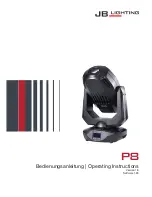
12
Handling details
Never put the handpiece
into any kind of liquid, and
never oil or grease the
handpiece. Clean its surface with a
damped cloth. Pay attention, that no
moisture
or
liquid
enters
the
handpiece.
Never put any wet burs or
instruments
into
the
handpiece.
Its
moisture
could damage the interior parts of
the handpiece.
Any
materials
used
by
hadewe prevent a formation
of rust. In cases in which a
rust infestation was found within the
handpiece, thorough inspections
and examinations always have
proved, that the rust had a foreign
origin (which was usually caused by
the
tools
used
in
these
circumstances). Even in high-grade
steel instruments of well known
manufacturers, formation of rust
can appear, e.g., through wrong
treatment with chemical cleaning
and
disinfection
liquids.
This
extraneous rust affects internal
parts of the handpiece in form of
rust bloom and causes pitting.
Therefore, when you not working
with the handpiece, always remove
the bur/ tool from it.
Always make sure that you
do not let the handpiece fall
down or exposes it to any
shocks. The ball bearings and the
motor could be damaged by this.
Only work with tools, which are
flawless.
Do not work with tools which
-
are bent or out of balance,
-
whose shaft is worn out or
-
are rusty.
Working with faulty tools will
cause a stronger vibration of
the handpiece. A damage or
even
devastation
of
the
ball
bearings, clamping technique or
motor could be the consequence.
Working with high pressure
will not improve the outcome
of your work, since the motor
will even be slowed down. A second
disadvantage is the stronger impact
on the ball bearings and the motor,
which will shorten their life span in
the long run.
Always
working
with
maximum speed might have
a similar effect. Please make sure
that the speed setting you use is
according to the work you are doing
and the instruments you are
working with.
Never clean the handpiece
with pressurized air or when
the motor is running. Dirt
could be forced into the bearings
causing damage.


































